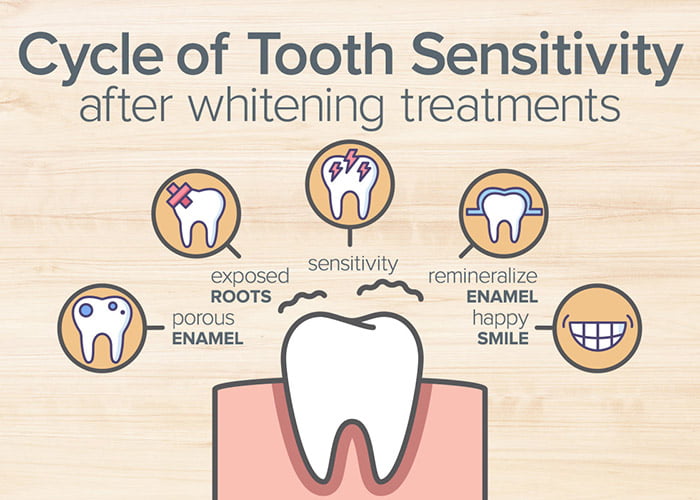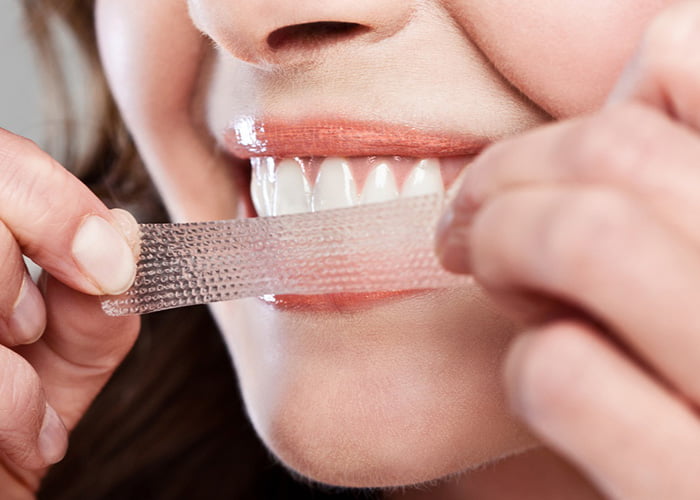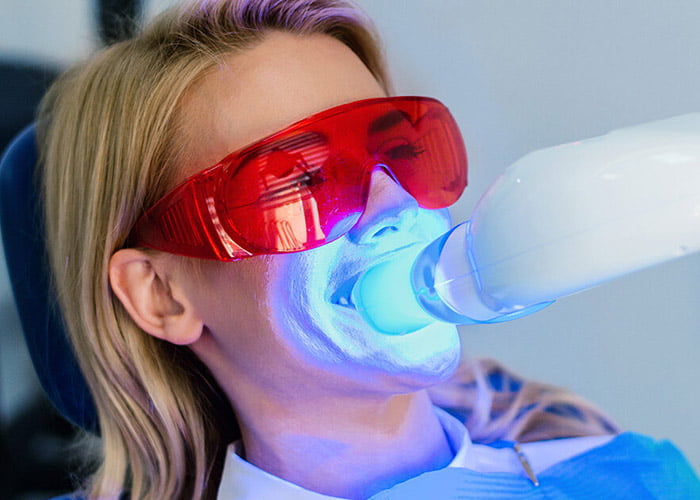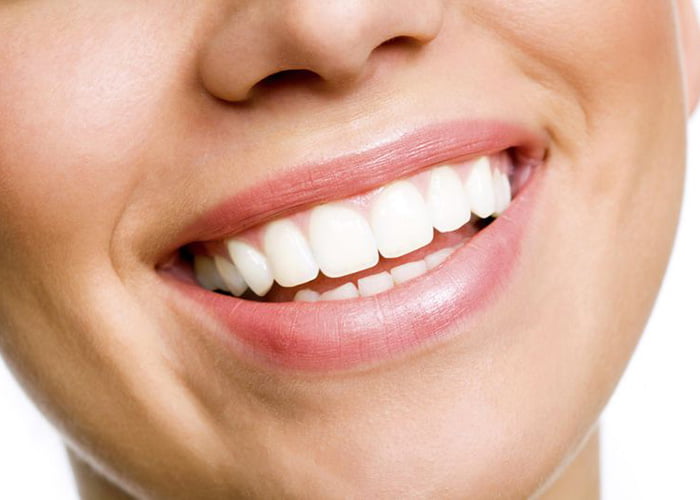Tooth sensitivity is one of the most common side effects of tooth whitening, which can happen because some of the whitening chemicals are irritating or even toxic to the enamel.
Many tooth whiteners come from professional dental whitening, and most are safe to use, but there are some risks, such as the possibility of tooth sensitivity.
The American Dental Association recommends that you limit the use of whitening products to two applications per week. If you need more than two applications in a single week, you should talk to your dentist. This will help you get the most out of your teeth whitening treatment.
Why can Teeth Whitening Cause Sensitivity?
A lot of people want whiter teeth and are willing to try different methods to achieve this goal. However, they may not be aware of the potential side effects of teeth whitening, one of which is sensitivity.
Teeth whitening is a popular cosmetic procedure that can be done at home or by a professional. While it is generally safe, some people may experience increased tooth sensitivity after the treatment. This is because the bleaching gel used in the procedure can cause the tooth enamel to become thinner, exposing the soft dentin layer underneath. Some teeth whitening trays may exert forces on your teeth which will temporarily make them sensitive.
If you experience sensitivity after teeth whitening, it is important to see your dentist to find out if there is another underlying cause. Normally, the nerves inside the tooth become heightened, responding much more to the sensation of temperature change, causing patients to feel discomfort when they drink or breathe. In most cases, the sensitivity is temporary and will go away on its own within a few days or weeks. However, if it persists or gets worse, you may need to discontinue the treatment.

Steps to Take Prior to Your Teeth Whitening Treatment
There are certain preventative measures you can take prior to your teeth whitening procedure in order to minimize the sensitivity you’ll experience afterwards:
– Brush with a desensitizing toothpaste: Start using a desensitizing toothpaste approximately 10 days before your procedure. These toothpastes will help block pain signals from the surface of your tooth to its inner nerve. Leave the toothpaste on the surface of your teeth for a few minutes before rinsing in order to achieve maximum effectiveness.
– Apply a desensitizing gel: This should be done before your treatment. Leave the gel on your teeth for the recommended length of time and then rinse with water.
– Take pain medication: Taking over-the-counter pain medication such as ibuprofen prior to your teeth whitening procedure can help minimize sensitivity and discomfort. You can continue taking this medication after your treatment to manage any lingering sensitivity.
At-Home Teeth Whitening: How to Avoid Sensitivity

At-home teeth whitening is an increasingly popular way to achieve a brighter smile. However, some people may experience sensitivity after the procedure. There are a few things you can do to avoid this. First, be sure to follow the instructions carefully. Second, use a desensitizing toothpaste for a few days before and after whitening. Finally, see your dentist if you experience any pain or discomfort. With these tips, you can enjoy your brighter smile without any sensitivity.
Professional Teeth Whitening: What to Expect
When you decide to get your teeth professionally whitened, there are a few things you can expect. First, your dentist will evaluate the sensitivity of your teeth and gums. They’ll also determine which whitening procedure or treatment will work best for you.
The most common type of professional teeth whitening is bleaching. This involves using a peroxide-based gel to remove stains and discoloration from your teeth. The gel is applied to your teeth and activated with a special light.
You may experience some sensitivity during and after the procedure, but this is usually temporary. You should avoid hot or cold beverages and foods for at least 24 hours after the treatment.

What Can I Do About Tooth Sensitivity?
If you are worried about overly sensitive teeth after your whitening treatment, there are some things you can do to mitigate the sensitivity and reduce its impact on your day-to-day life.
- Avoid foods and drinks that are hot and cold.
- Use an anti-sensitivity toothpaste for several days before the whitening and for several days afterward.
- Consider our at-home treatments for a more mild and gradual whitening that causes less sensitivity in teeth.
- Anti-sensitivity medication may also be available to patients with high levels of tooth sensitivity.
See Dentist For Life
Looking for an experienced and trusted dentist in Marysville, Ohio? Look no further than Dentist For Life! We provide comprehensive dental care for patients of all ages. We take a wide variety of insurance plans and are currently accepting new patients. You can reach us at (937) 707-1111 or schedule your appointment online here.



